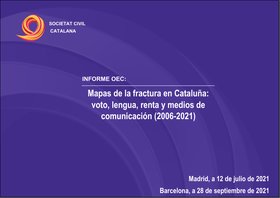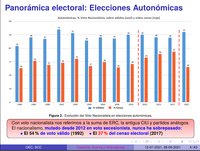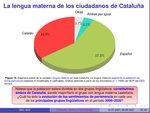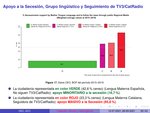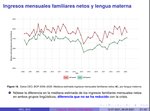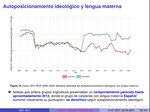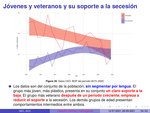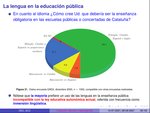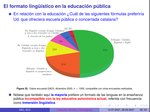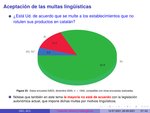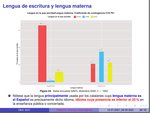The influence of language and media
Facts and figures on the structure of Catalonia
October, 2021
The Election Observation Commission (OCE) of the Societat Civil Catalana (SCC), an organisation of opponents of Catalan separatism, presented an extensive study in September on the correlations and structures of voting behaviour, language, income and media consumption in Catalonia.
In it, statistical data is presented that show clear correlations between secession attachment, feelings of belonging or national identity, media and family language. Monthly household net income, ideological self-positioning, age and some indications of relevant linguistic issues of the respondents are also examined.
I have translated and annotated some of the results:
Catalan regional elections
To enlarge the pictures, please click on the respective image.
The blue bar shows the percentage of votes cast for separatist/nationalist parties.
The red bar shows the percentage for separatist parties as a percentage of eligible voters.
(The ERC, CiU, its successors and analogous parties are counted as votes for independence. The parties/alliances around the conservative CiU have always had changing names. Their current representative is Carles Puigdemont.HJ)
The years from 2012 onwards are highlighted for the following reason: „In December 2012, the President of the Generalitat, Artur Mas (CiU), and Oriol Junqueras (ERC) signed a governability pact (roughly like coalition agreement) in which they committed to hold a self-determination referendum in Catalonia. In January 2014, the Catalan parliament asked the Spanish Chamber of Deputies to delegate powers to hold a referendum on independence, but this was rejected.“ (Wikipedia) This referendum was nevertheless held in 2017 and led to the arrest of separatist politicians and the flight of Puigdemont.
For this period from 2012 onwards, it is striking that the higher the separatist vote among eligible voters (red), the lower the share in the votes cast (blue). This ratio tips in 2021, when, due to the Corona policy, the electoral participation dropped drastically. One can conclude from this that the separatists' supporters are more likely to vote.
Catalan heterogeneity: language, territory and media monitoring
A very uneven impact of the „procès“ becomes clear when we divide Catalonia by areas, languages and media.
A strong correlation between support for secession and selective observation of the autonomous news media has been demonstrated, and this correlation remains when we examine the language factor.
The very strong correlation between secessionism, TV3/CatRadio following and mother tongue raises the suspicion that autonomous resources are being used for policies that divide Catalans and risk undermining the segment of dual national feeling that is important for social cohesion.
Some legacies of the „procès“
The strong erosion in the Catalan language group of the dual-minded bloc (Spanish and Catalan-minded in equal measure) and the increase in extreme, pure Catalan-mindedness in this language group is one of the most tangible and worrying results of the „procès“. It is a change that affects one section of the Catalan population in particular: that of the Catalan families/mother tongue.
The mother tongue of Catalan citizens
In the group of Catalan citizens with Spanish families/mother tongue, on the other hand, there are only minimal changes in their sense of belonging. This group (which represents the majority in Catalonia, namely 57%, see adjacent figure) proves immune to the implementation of the „procès“.
Support for independence, linguistic group and viewers/listeners of TV3/Cat Radio
The exception is those who follow the news on TV3/CatRadio (group C in the adjacent figure, 11.3% of the Catalan population in the upper colour bar).
42.6% of eligible native Spanish speakers (green) who do not follow TV3/CatRadio support independence by only 16.7%. The native Catalan speakers (red) who are eligible to vote and who follow TV3/CatRadio support independence by 85.8%.
Economic aspects and political reactions differentiated by left and right and by age difference
Catalans with Catalan as their mother tongue have a higher net family income than Catalans with Spanish as their mother tongue, a situation that persists throughout the period studied and does not improve during the crisis (see figure with graph for monthly income)
Catalans with Catalan as their mother tongue and Catalans with Spanish as their mother tongue perform similarly on the variable ideological self-positioning until 2014. After that, the Catalans with Spanish as their mother tongue become more right-wing, a phenomenon that can be explained by the different positioning of the autonomous right-wing and left-wing parties during the „procès“ (see figure with ideological self-positioning along mother tongue)
The youngest age group is the one whose support for secession declined most significantly. (see graph). The data refers to the total population and is not broken down by language. The younger group as a whole shows a clear downward trend in support. The older group, after a period of increasing support for secession, begins to decrease their support for secession. The other age groups show intermediate behaviour between the two.
Regional language policy and the preferences of some citizens interviewed
Language in public education
The preferences expressed regarding the use of different languages in the public or subsidised education system are not compatible with the well-known linguistic immersion, which is a product of regional legislation. The question asked was: „In your opinion, how should compulsory education be organised in the public or state-subsidised schools (concertadas) in Catalonia?“ Note that the majority favours a use of languages in public education that is incompatible with the autonomous education law in force, called linguistic immersion.
The language format in public education
The question asked was: „In terms of education, which of the following formulas would you prefer Catalan public or state-subsidised (concertadas) schools to offer?“ Again, the majority favours a language format in public education that is incompatible with the current autonomous education law, linguistic immersion. (Noteworthy, this is the first time that the language should be determined by the parents appears, with 6.6%. HJ)
Acceptance of language fines
There is very clear resistance to the linguistic fines imposed under autonomous legislation on shops that do not label their products in Catalan (see figure).
Written and native language
It is worth remembering that 57% of Catalans (Figure 10) have Spanish as their mother tongue, which is also the main written language (see figure), and that despite court rulings that at least 25% of teaching must be in Spanish, this figure is not respected in practice.
| | | | Click here to subscribe or cancel your subscription |
Myths and deceptions of Catalan nationalism

Here you'll find the translation
The strategy of recatalanization
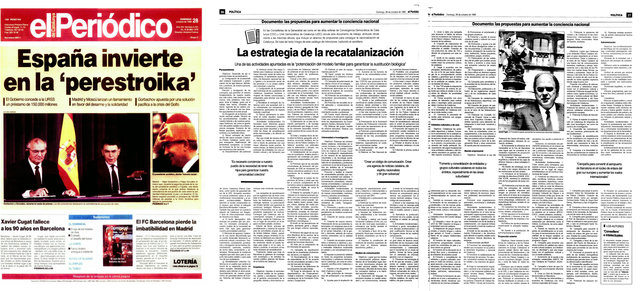 1980 the Spanish journal "El Periodico" published a secret document about the strategy of the Catalan government. It shows in a frightening way the actual spiritual world of the separatist leaders.
1980 the Spanish journal "El Periodico" published a secret document about the strategy of the Catalan government. It shows in a frightening way the actual spiritual world of the separatist leaders.Now it is available in english translation.
Pancatalanism
the separatist's imperial claim
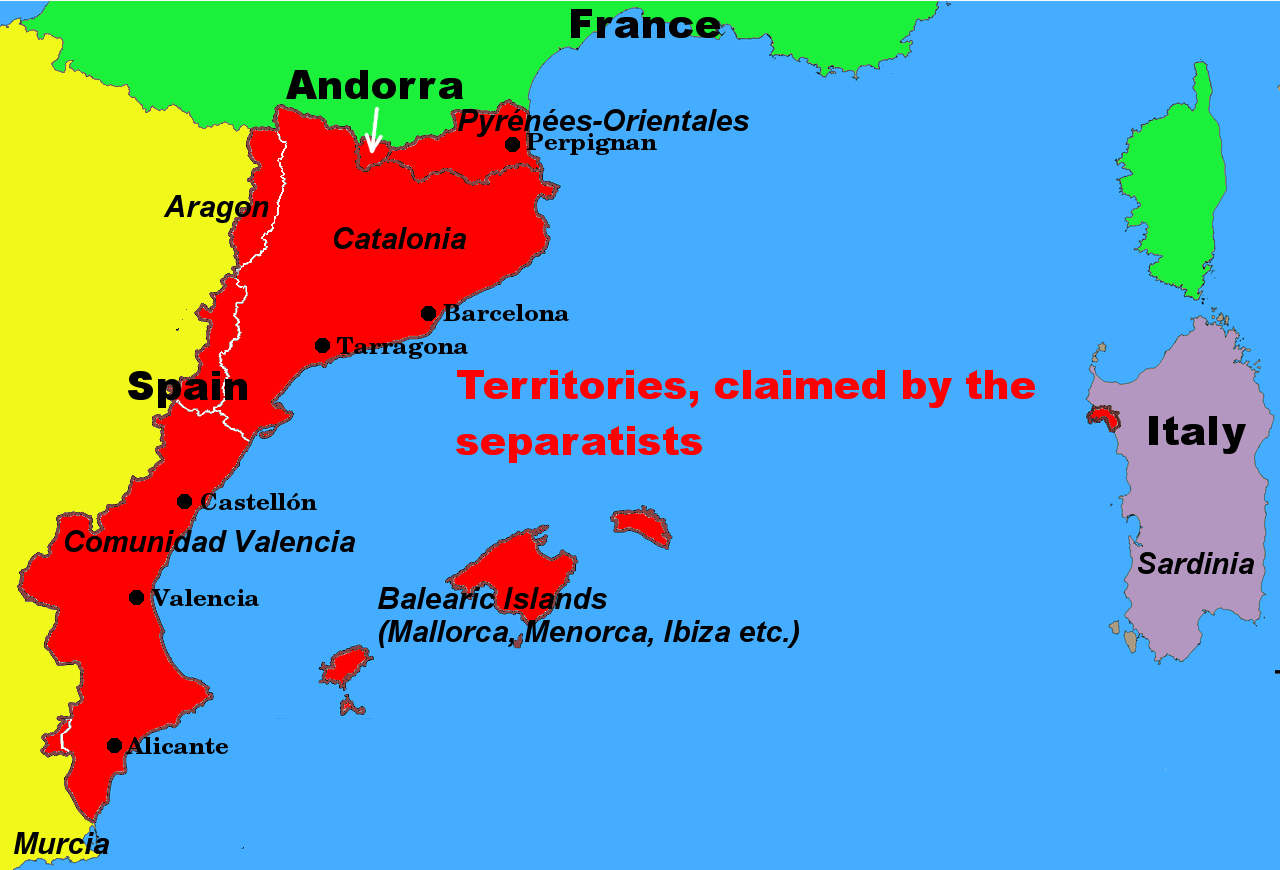 The Catalan government exports the conflict into communities with Catalan population, supporting all efforts of the separatists including financial means to destroy Spain.
The Catalan government exports the conflict into communities with Catalan population, supporting all efforts of the separatists including financial means to destroy Spain. An important tool is the establishment of a language dictatorship that is not afraid to use the same means as Franco.
Separatist indoctrination

Click here to read the study
Language imposition and democracy
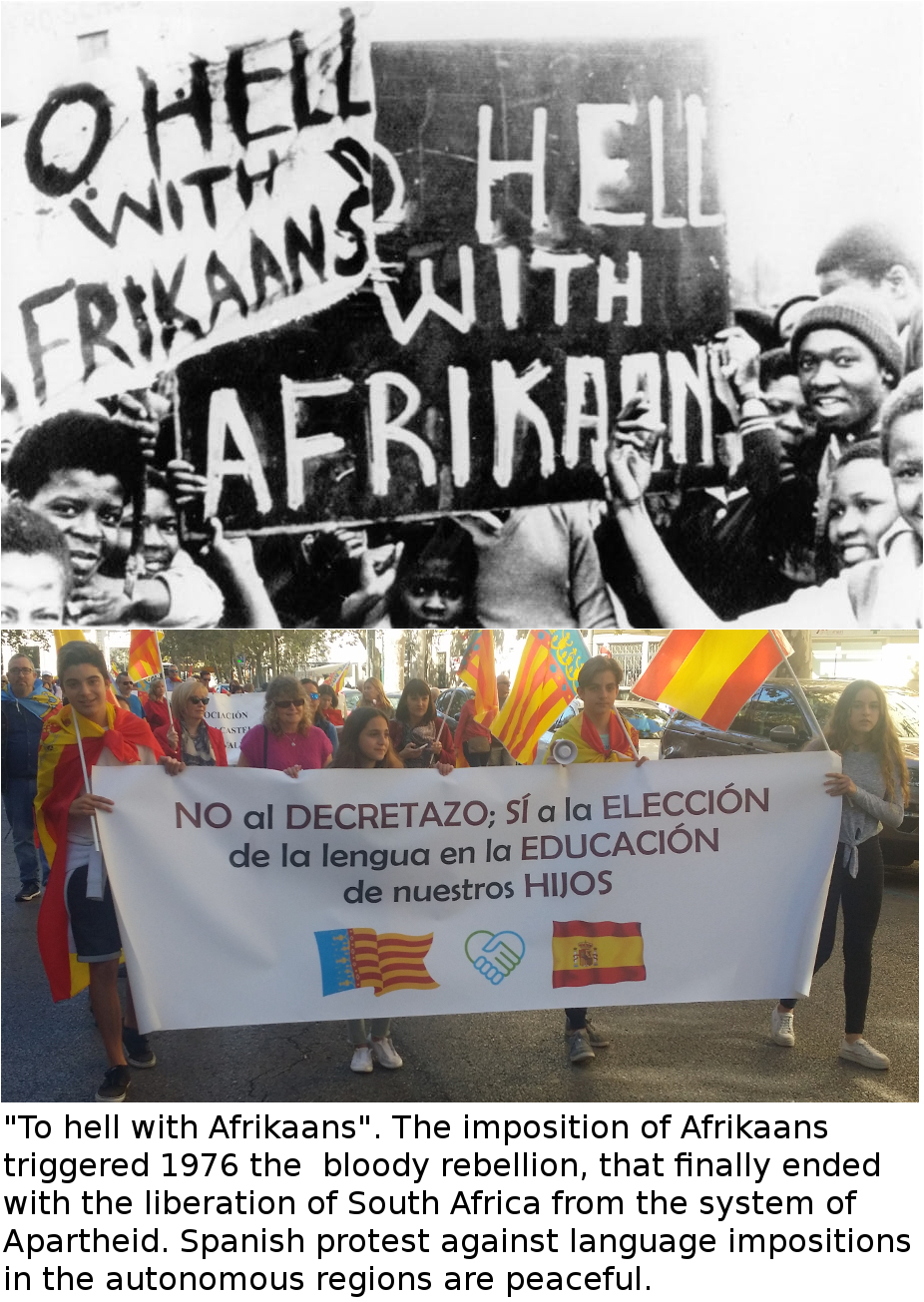
An essay in 6 parts on the potentially violent effect of language imposition containing contributions from South Africa, Catalonia, Ukraine and France.
go to part 1
Publications
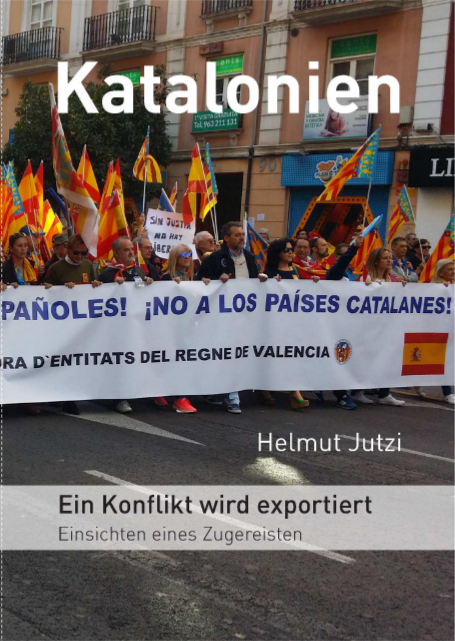 The title says: "Catalonia, a conflict is exported. Insights of a migrant"
The title says: "Catalonia, a conflict is exported. Insights of a migrant"Sorry, up to now, this book is only available in German. However, drop us a line, if you are interested to learn more Contact.
